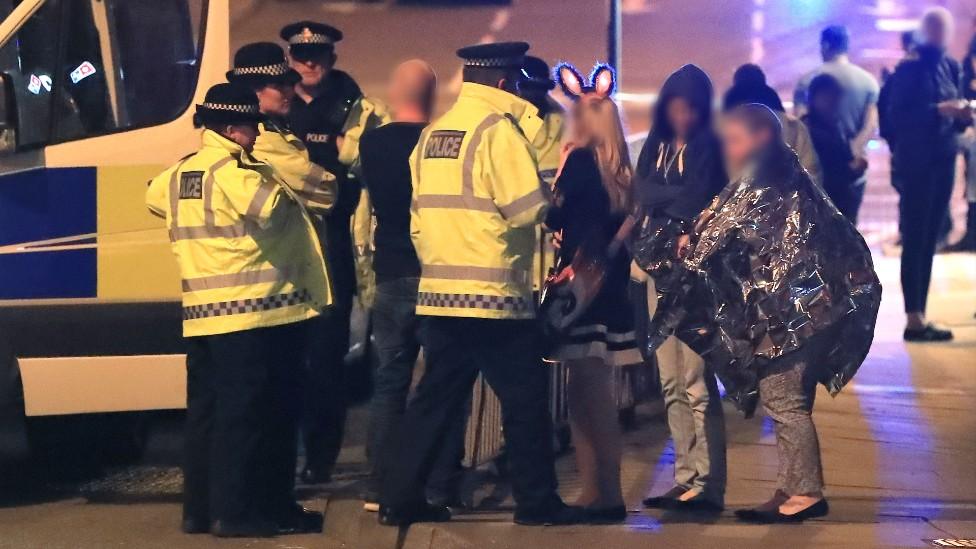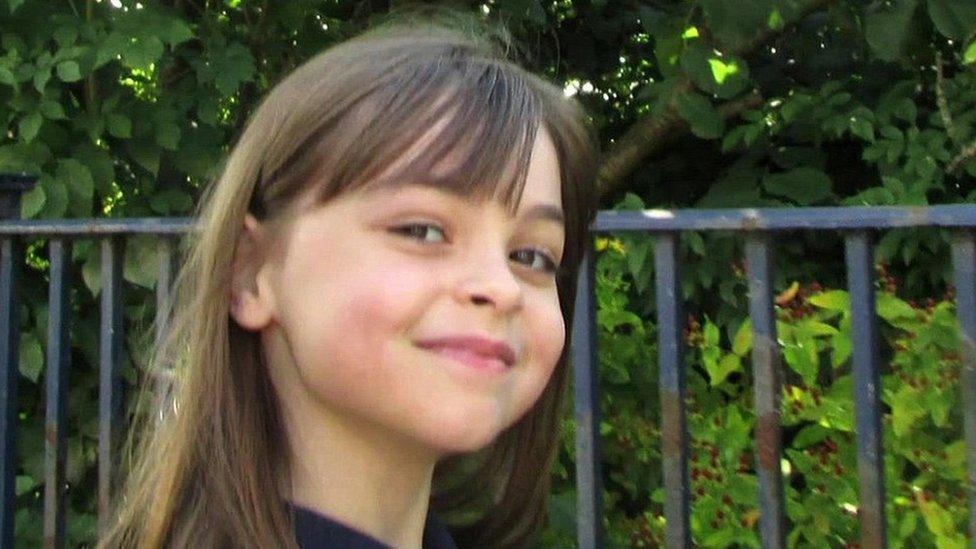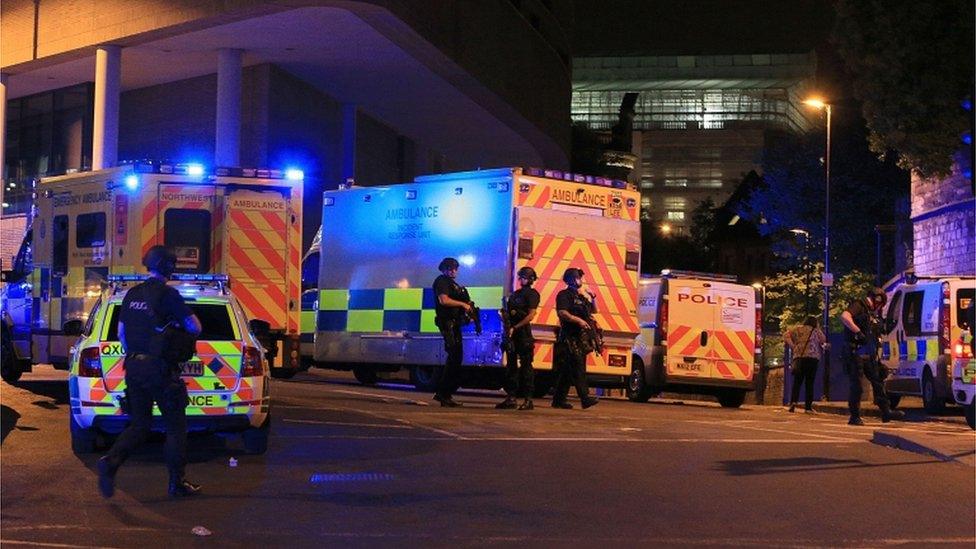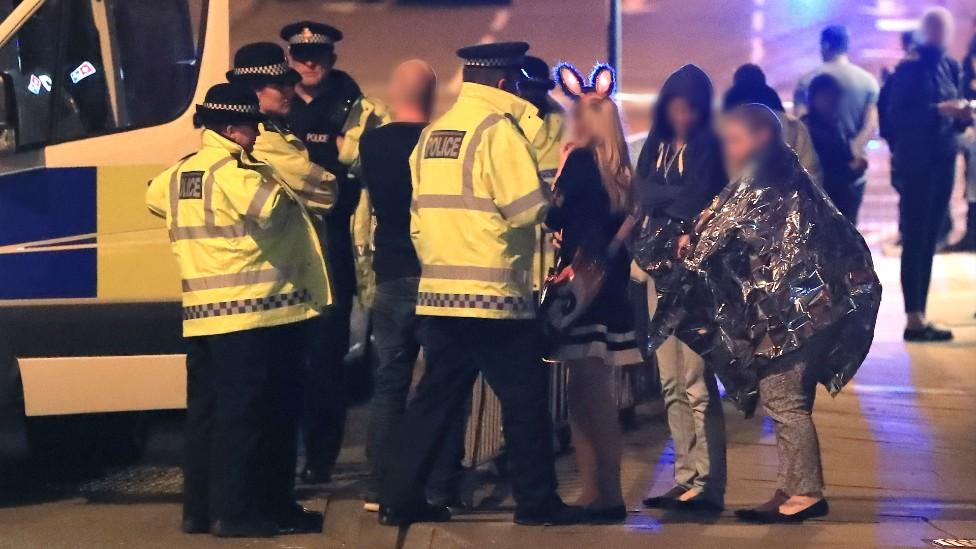Manchester Arena attack: Young survivors lack support, study finds
- Published

Dr Hill said it was time to "make sure young people who experience similar events... get the best possible care"
Some young survivors of the Manchester Arena attack have not received professional support despite wanting it, a research study has found.
Hundreds of youngsters were physically or mentally injured in the bombing in May 2017, which killed 22 people.
A study by Lancaster University and the National Emergencies Trust (NET) found support in the aftermath was limited.
The Home Office said a "review into the support package provided to victims of terrorism" was under way.
Twenty-two people died and hundreds were injured when a suicide bomber detonated a homemade device in the foyer of Manchester Arena as crowds left an Ariana Grande concert on 22 May 2017.
'Totally dismissed'
The university and NET launched an online survey in August 2022, asking children and young people who were caught up in the attack to share their experiences as part of a project to identify what support would be most beneficial to young survivors.
The organisations said more than 200 people had taken part in the research, all of whom were under 18 at the time of the attack.
They said about 150 of those who responded had been psychologically injured, but about 60 had not received any professional support, about 25 of whom also stated they had never been offered it.
They added that while the vast majority of those taking part had felt they needed support in the aftermath, about 140 had received no professional help within the first month and just over 60 remained in the same position after the first year.

Twenty-two people were killed by a suicide bomber after an Ariana Grande concert
The researchers said some professional help "offered by teachers, counsellors, GPs and others" had "inadvertently introduced more trauma".
One respondent said a tutor told her that they "should take the attack as a positive experience" which would make them "a stronger person", another said when they asked for help, "they brushed me off and put it down to just teenage hormones", while a third said a GP "totally dismissed" their feelings.
However, the study also found examples of "incredible pastoral care in schools, where individuals went above and beyond to support young survivors' new needs".
One respondent said their teacher was there for them when they "needed to sit out of lessons or talk about what had affected me that day", while another said meeting other survivors for the first time had helped as they had been "greeted with open arms into a new, wonderful, kind safe space".
The research was led by Dr Cath Hill, who also survived the attack.
She said the findings showed that the "simple act of validating young people's views can make a huge difference to their wellbeing", which was something all those in positions of care "could be more mindful of should the worst happen again".
"Equally, introducing the option of an official survivor status for children's school or college records could prevent them from having to relive their trauma time and again," she said.
NET chief executive Mhairi Sharp said there had been "a glaring gap in knowledge about how UK disasters affect children and young people" and the research offered "valuable direction for emergency funders like us".
"We can raise awareness with our partners so that there is less onus on future survivors to seek out support [and] also offer funding to those who would like to set up peer support groups," she said.
A Home Office representative said there was "practical and emotional support available to anyone impacted by terrorism, including a 24/7 support line, mental health assessments and referrals, and long-term peer support".
They said the government had "worked to strengthen the support available to victims of terrorism, but we know there is still more to do".
"The Home Office Victims of Terrorism Unit is currently conducting an internal review into the support package provided to victims of terrorism, to better address their needs following a terrorist attack," they added.

Why not follow BBC North West on Facebook, external, Twitter, external and Instagram, external? You can also send story ideas to northwest.newsonline@bbc.co.uk, external
- Published5 March 2023

- Published2 March 2023

- Published3 November 2022

- Published15 August 2022

- Published17 June 2021

- Published3 November 2022
